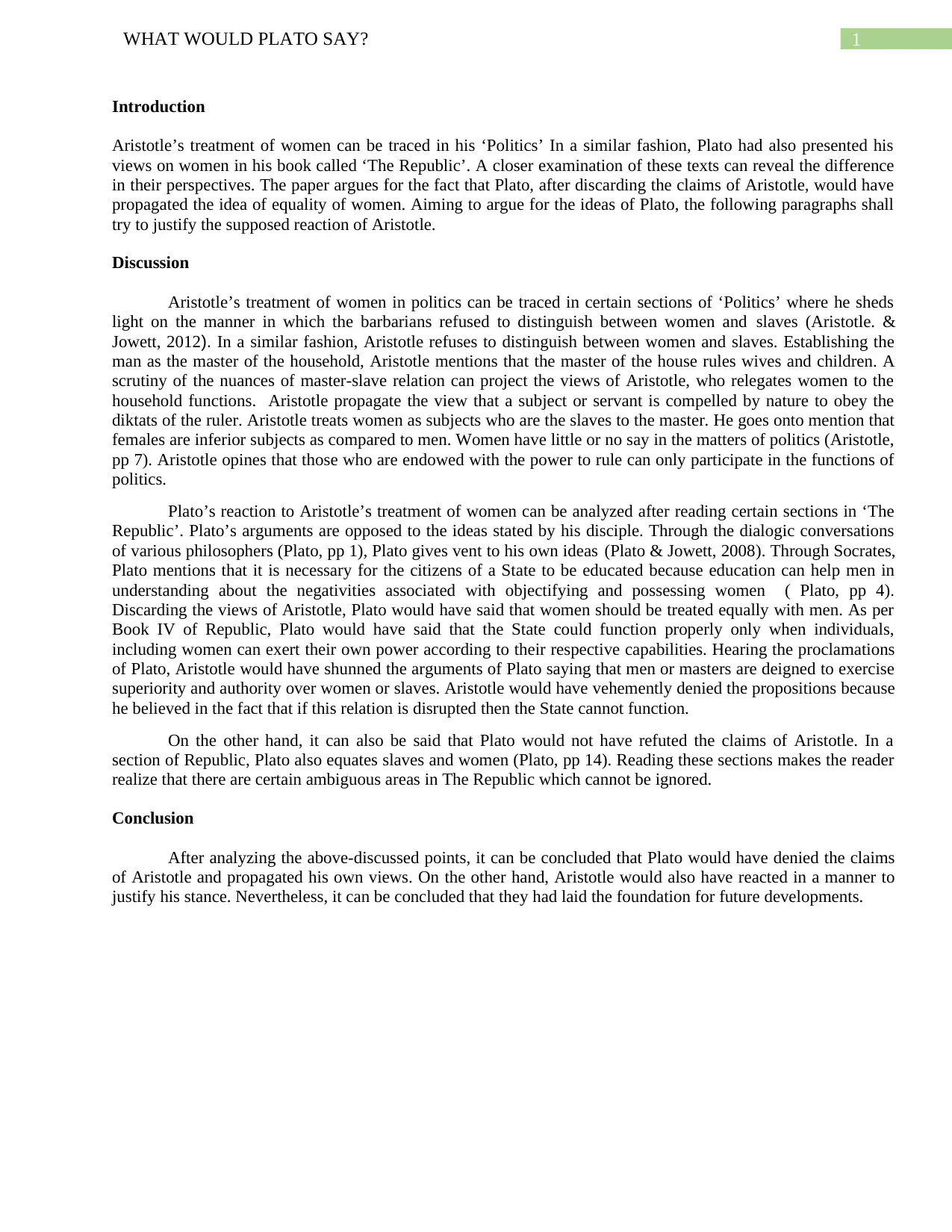POLI221 Fall 2018: Comparing Plato and Aristotle on Women in Politics
VerifiedAdded on 2023/05/26
|3
|712
|383
Homework Assignment
AI Summary
This paper delves into Plato's perspective on the role of women in politics, contrasting it with Aristotle's views. The student analyzes Aristotle's treatment of women in 'Politics,' highlighting his view of women as subordinate to men and confined to household functions. The paper then examines Plato's arguments in 'The Republic,' particularly his advocacy for equal education and opportunities for women, suggesting that Plato would have disagreed with Aristotle's stance. The assignment concludes by summarizing the opposing viewpoints of the two philosophers, laying the groundwork for future developments in political thought. The student makes a case for Plato's support of women's equality, while also acknowledging certain ambiguities within Plato's writings.
1 out of 3





![[object Object]](/_next/static/media/star-bottom.7253800d.svg)